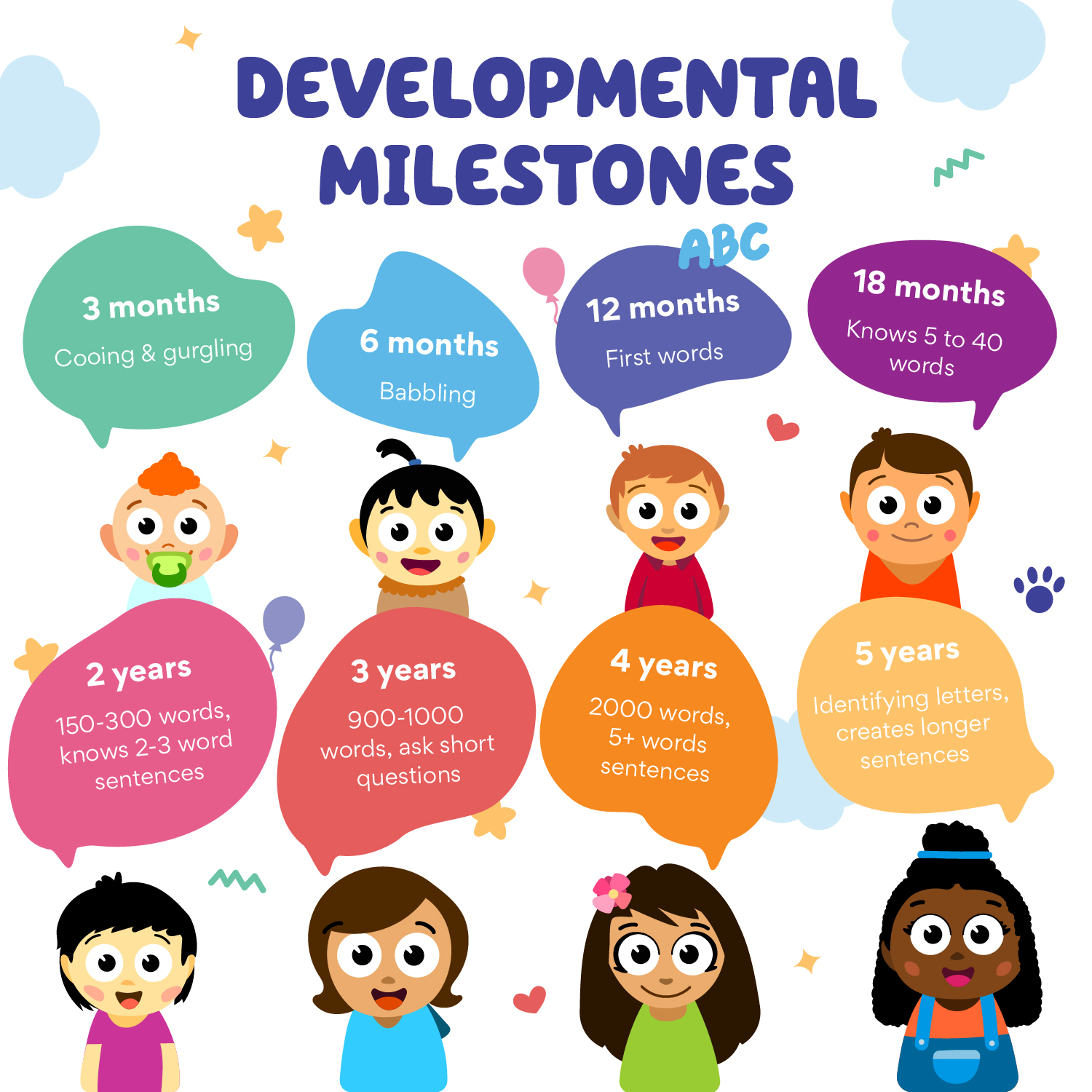 Source: bing.com
Source: bing.comTable of Contents
Introduction
As parents, we are always eager to see our babies grow and develop. One of the most exciting milestones is when our little ones start to make sounds and communicate with us. At 5 months, your baby’s speech development is just beginning, but there are plenty of things you can do to encourage it. In this article, we’ll explore what to expect from your 5-month-old’s speech development and provide tips for helping them along the way.
What to Expect at 5 Months
At 5 months, your baby’s speech development is still in its early stages. However, they will be making more sounds and starting to experiment with their voice. Some of the sounds your baby may be making include coos, squeals, and raspberries. They may also be starting to babble, which is when they string together syllables like “ba-ba” or “da-da.”Your baby will also be more responsive to sounds around them. They may turn their head towards voices or respond to music and other noises. Additionally, they may start to recognize their name and turn towards you when you say it.It’s important to remember that every baby develops at their own pace, so try not to compare your baby to others. If your baby is not making as many sounds as another baby their age, it doesn’t necessarily mean there is a problem.
How to Encourage Speech Development
While your baby’s speech development is largely dependent on their own natural progression, there are things you can do to encourage and support it. Here are some tips:1. Talk to your baby: One of the best ways to encourage speech development is to talk to your baby. Even though they may not understand what you’re saying, they will benefit from hearing your voice and the sound of language. Talk to your baby throughout the day, telling them what you’re doing, describing objects and people around them, and singing songs.2. Respond to your baby’s sounds: When your baby makes sounds, respond to them. This will encourage them to make more sounds and help them learn the back-and-forth of communication. For example, if your baby says “ba-ba,” you can respond by saying “yes, that’s right, ba-ba.”3. Read to your baby: Reading to your baby is another great way to encourage speech development. Even though they may not understand the words, they will benefit from hearing the rhythm and melody of language. Choose books with simple, repetitive language and colorful pictures.4. Use gestures: Gestures can be a helpful tool for communicating with your baby. For example, you can wave goodbye or blow kisses to help your baby understand what you’re saying.5. Play with your baby: Playtime is a great opportunity to encourage speech development. Use toys and games that encourage your baby to make sounds and communicate, such as rattles and peek-a-boo.
When to Be Concerned
While every baby develops at their own pace, there are some signs that may indicate a speech delay. If your baby is not making any sounds at all by 5 months, or if they are not responding to sounds around them, it may be worth talking to your pediatrician. Other signs of a speech delay include not making eye contact or not showing interest in communicating with others.It’s important to remember that most babies who are not yet making sounds at 5 months will catch up in their own time. However, if you have concerns, it’s always best to talk to your pediatrician.
Conclusion
At 5 months, your baby’s speech development is just beginning, but there are plenty of things you can do to encourage it. Talk to your baby, read to them, respond to their sounds, use gestures, and incorporate playtime into your day. Remember that every baby develops at their own pace, so try not to compare your baby to others. If you have concerns, talk to your pediatrician.
Frequently Asked Questions
Q: What should I do if I’m concerned about my baby’s speech development?
A: If you have concerns about your baby’s speech development, talk to your pediatrician. They can help evaluate your baby and provide guidance on next steps.
Q: When should my baby start talking?
A: Every baby is different, but most babies start saying their first words between 9 and 14 months.
Q: Can I do anything to prevent a speech delay?
A: While some speech delays are simply a result of a baby’s natural development, there are things you can do to encourage speech development. Talk to your baby, read to them, respond to their sounds, use gestures, and incorporate playtime into your day.
Q: Should I be concerned if my baby isn’t saying “mama” or “dada” yet?
A: Not necessarily. While “mama” and “dada” are common first words, every baby develops at their own pace. If your baby isn’t saying these words yet, it doesn’t necessarily mean there is a problem.
Q: How can I tell if my baby is hearing properly?
A: If you have concerns about your baby’s hearing, your pediatrician can perform a hearing test to evaluate their hearing ability. Signs of a hearing problem may include not responding to sounds or not turning towards voices.
